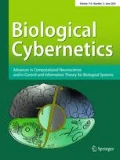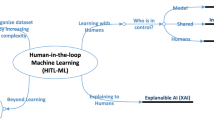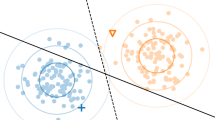Abstract
A new theory of learning is presented. Learning has been discussed by philosophers as a problem of acquiring knowledge. Historically, we can distinguish empiricism and rationalism. The rationalist insists that the essential part of our knowledge is innately built in ourselves, while the empiricist asserts that all knowledge derives from experience. The statistical learning theory originating in Perceptron is conceptually based on the association psychology which is one of the schools of empiricism. A recent study of language learning, however, informs us that, only from the rationalist standpoint of view, we can interprete the evident fact that one knows a remarkable amount of matters which he has never learned before. From this standpoint, the present paper deals with the mystery: “done can know all from hearing one, i.e., a word to the wise is enough”, and mathematically demonstrates that such a possibility of knowledge acquisition manifests highly topological characteristics. This will give some new suggestions to the study of pattern recognition and learning.
Similar content being viewed by others
References
Aizawa,T., Uesaka,Y., Ebara,T., Ozeki,K.: Topological aspects of learning space (in Japanese). Research Report of NHK (Japan Broadcasting Corporation) (1972).
Azuma,H. (Ed.): Handbook of psychology of learning and instruction (in Japanese). Tokyo: Kaneko-Shobo 1968.
Chomsky,N.: Aspects of the theory of syntax. Mass.: The MIT Press 1965.
Chomsky,N.: Cartesian linguistics. A chapter in the history of rationalist thought. New York: Harper & Row 1966.
Chomsky,N.: Language and mind. New York: Harcout Brace & World Inc. 1968.
Kawata,Y., Mimura,Y.: General concepts of modern mathematics, Vol. II (in Japanese). Tokyo: Iwanami-Shoten 1965.
Lyons,J.: Chomsky, London: Wm. Collins & Co. Ltd. 1970.
Mendel,J.M., Fu,K.S. (Eds.): Adaptive, learning, and pattern recognition systems. New York: Academic Press 1970.
Rosenblatt,F.: Principles of neurodynamics. New York: Spartan Books 1962.
Uesaka,Y.: Theory of pattern recognition and learning (in Japanese). Tokyo: Sogo-Tosho 1971.
Uesaka,Y., Aizawa,T., Ebara,T., Ozeki,K.: A theory of learnability (in Japanese). Research report of NHK (1972).
Author information
Authors and Affiliations
Rights and permissions
About this article
Cite this article
Uesaka, Y., Aizawa, T., Ebara, T. et al. A theory of learnability. Kybernetik 13, 123–131 (1973). https://doi.org/10.1007/BF00270506
Received:
Issue Date:
DOI: https://doi.org/10.1007/BF00270506




